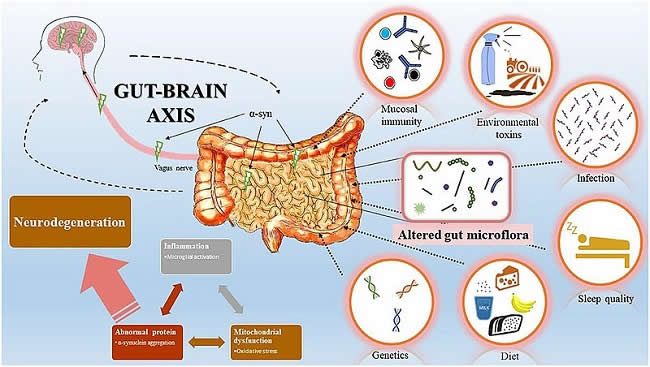Positive Health Online
Your Country

Ways to Help Low Mood and Depression in the Menopause
listed in nutrition, originally published in issue 279 - June 2022
I was recently listening to a medical doctor describing what happened when she went to see her own doctor. She was in the peri menopause and suffering with very low mood. Her doctor’s answer was to prescribe an anti-depressant which did not help her.
Unfortunately, the above scenario is all too common for women who are in peri menopause, the phase lasting 10 years or more before periods stop. These women need a solution that will address their hormone imbalance, which can often be the root cause of a mood issue.
Thankfully recent media interest has put menopause in the limelight. There is growing awareness around peri menopause now, although not in the above case.
https://en.wikipedia.org/wiki/File:Symptoms_of_menopause_(vector).svg
Symptoms of Menopause
HRT and the Missing Piece
Doctors sometimes offer HRT rather than anti-depressants. HRT is going through something of a renaissance. Negative HRT studies in the early noughties meant that it was no longer offered as a first line treatment for menopause symptoms. Now with better forms of HRT which are lower risk, it is back in favour again.
But HRT isn't right for everyone and it’s empowering to have alternatives.
The training doctors go through is very thorough when it comes to biochemistry and physiology. But it does not include any teaching about the importance of diet for health in the menopause or throughout life. That's a big omission. There is a big evidence base for the effect of diet on all aspects of health including feeling well in peri menopause. This means you can take charge of your health and feel well during the menopause
And, you won’t end up on anti-depressants when you most probably don't need them!
https://commons.wikimedia.org/wiki/File:DIETA_MEDITERRANEA_ITALIA.JPG
Mediterranean diet foods – A spread of fruits, bread, olive oil, and wine
The Power of Food
There is more and more research which points towards diet quality being a potential protective or risk factor for depression.
An important study called the SMILES trial involved 67 people with moderate to severe depression.[1] Some people were given sessions of social support only whilst some were given the same amount of time with a dietician who put them on a Mediterranean diet. The diet was based around a high amount of fruit and vegetables, legumes, olive oil, lean proteins from fish and meat, eggs, wholegrains and minimal processed food.
After just 12 weeks, the depressive symptoms of the people in the diet group improved significantly compared to the group receiving social support. One third of the depressed people scored low enough on the depression screening to be classed as in remission. That is quite a phenomenal result.
These results are in line with evidence that has been gathering from other studies. Diets higher in fruits, vegetables, wholegrains, legumes, lean proteins including fish are associated with a reduced risk for depression. Diets that that include more processed food and sugary products are linked with an increased risk of depression
So, if your mood is less than buoyant, it is very well worth looking at your diet. Ideally work with a nutritional therapist to avoid potential imbalances and deficiencies
https://commons.wikimedia.org/wiki/File:Gut-brain_axis_overview.jpg
Gut-brain axis Overview
How Your Gut Bacteria Affect Your Mood
Another fascinating area of research is the effect of the gut flora on mood and mental health.
Your gut microbiome contains good bacteria (probiotics) which need food to help them grow (prebiotics). There are certain probiotics and prebiotics which assist mental health through their effect on the brain. Certain gut bacteria produce chemical messengers called neurotransmitters such as GABA which has a relaxing effect, serotonin, a mood lifter and “feel good” dopamine. Gut bacteria also help to reduce inflammation. It is now known that inflammation plays an important role in depression.
In summary, is thought that gut bacteria are able to help reduce anxiety, improve the stress response and reduce mental health problems. Your gut is very influenced by your hormones and menopausal fluctuations can exacerbate symptoms such as bloating, gas, constipation or loose bowels. Feeding your gut microbiome with the right foods to increase your good gut bacteria. Foods that help are soluble fibre such as oats and brown rice and try fermented foods such as sauerkraut and live yoghurt (soya or coconut yoghurt containing cultures are good dairy free alternatives).
B Vitamins and Mood
Many of the B vitamins are involved in functions which impact directly on the brain and nervous system. A two month long study using B vitamins involved 60 adults diagnosed with clinical depression or another depressive disorder. Participants given a B complex supplement showed significant and more continuous improvements in depressive and anxiety symptoms, compared to placebo. In other studies, B12 and folic acid have been found to be low in depressives. Low folate is linked with poor response to anti-depressant medication and treatment with folic acid improves response.
B vitamins can be easily lost from your body as they are water soluble. Factors such as prolonged stress, eating too much sugar or drinking too much tea, coffee or alcohol and certain medications deplete B vitamins. If you are going to top up your B vitamins with a supplement, look for one with the active (methylated) forms which your body can use much more effectively. For example on the label, it should say methyl folate not folic acid.
In my practice, I use Biocare Methyl B Complex.
You should only need to take a B complex for a short period, like one month for a boost, rather than taking it all the time. Don’t take it if you are already taking a multivitamin as you might get too high a dose of B vitamins. If you are on medication, work with a nutritional therapist.
I hope this article has given you an insight into the influence of your diet on your mood. The causes of low mood are complex. Food is one cause which deserves more attention.
References
- Jacka, F.N., O’Neil, A., Opie, R. et al. A randomised controlled trial of dietary improvement for adults with major depression (the ‘SMILES’ trial). BMC Med 15(1):23. Jan 30 2017. https://doi.org/10.1186/s12916-017-0791-y
- John E Lewis 1, Eduard Tiozzo, Angelica B Melillo, Susanna Leonard, Lawrence Chen, Armando Mendez, Judi M Woolger, Janet Konefal. The effect of methylated vitamin B complex on depressive and anxiety symptoms and quality of life in adults with depression. ISRN Psychiatry. 2013:621453. Jan 21 2013. https://doi.org/10.1155/2013/621453
- Alec Coppen 1, Christina Bolander-Gouaille. Treatment of depression: time to consider folic acid and vitamin B12. J Psychopharmacol 19(1):59-65. Jan 2005. https://doi.org/10.1177/0269881105048899
Comments:
-
No Article Comments available
%20450x454px.jpg)

